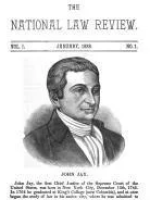On Sunday, October 3rd, Facebook whistleblower Frances Haugen publicly revealed her identity on the CBS television show 60 Minutes. Formerly a member of Facebook’s civic misinformation team, she previously reported them to the Securities and Exchange Commission (SEC) for a variety of concerning business practices, including lying to investors and amplifying the January 6th Capitol Hill attack via Facebook’s platform.
Like all instances of whistleblowing, Ms. Haugen’s actions have a considerable array of legal implications -- not only for Facebook, but for the technology sectors and for labor practices in general. Especially notable is the fact that Ms. Haugen reportedly signed a confidentiality agreement or sometimes call a non-disclosure agreement (NDA) with Facebook, which may complicate the legal process.
What are the Legal Implications of Breaking a Non-Disclosure Agreement?
After secretly copying thousands of internal documents and memos detailing these practices, Ms. Haugen left Facebook in May, and testified before a Senate subcommittee on October 5th. By revealing information from the documents she took, Facebook could take legal action against Ms. Haugen if they accuse her of stealing confidential information from them. Ms. Haugen’s actions raise questions of the enforceability of non-disclosure and confidentiality agreements when it comes to filing whistleblower complaints.
“Paradoxically, Big Tech’s attack on whistleblower-insiders is often aimed at the whistleblower’s disclosure of so-called confidential inside information of the company. Yet, the very concerns expressed by the Facebook whistleblower and others inside Big Tech go to the heart of these same allegations—violations of privacy of the consuming public whose own personal data has been used in a way that puts a target on their backs,” said Renée Brooker, a partner with Tycko & Zavareei LLP, a law firm specializing in representing whistleblowers.
Since Ms. Haugen came forward, Facebook stated they will not be retaliating against her for testifying before Congress. It is unclear whether protections from legal action extend to other former employees, as is the case with Ms. Haugen.
“Other employees like Frances Haugen with information about corporate or governmental misconduct should know that they do not have to quit their jobs to be protected. There are over 100 federal laws that protect whistleblowers – each with its own focus on a particular industry, or a particular whistleblower issue,” said Richard R. Renner of Kalijarvi, Chuzi, Newman & Fitch, PC, a long-time employment lawyer.
According to the Wall Street Journal, Ms. Haugen’s confidentiality agreement permits her to disclose information to regulators, but not to share proprietary information. A tricky balancing act to navigate.
“Big Tech’s attempt to silence whistleblowers are antithetical to the principles that underlie federal laws and federal whistleblower programs that seek to ferret out illegal activity,” Ms. Brooker said. “Those reporting laws include federal and state False Claims Acts, and the SEC Whistleblower Program, which typically feature whistleblower rewards and anti-retaliation provisions.”
Legal Implications for Facebook & Whistleblowers
Large tech organizations like Facebook have an overarching influence on digital information and how it is shared with the public. Whistleblowers like Ms. Haugen expose potential information about how companies accused of harmful practices act against their own consumers, but also risk disclosing proprietary business information which may or may not be harmful to consumers.
Some of the most significant concerns Haugen expressed to Congress were the tip of the iceberg according to those familiar with whistleblowing reports on Big Tech. Aside from the burden of proof required for such releases to Congress, the threats of employer retaliation and legal repercussions may prevent internal concerns from coming to light.
“Facebook should not be singled out as a lone actor. Big Tech needs to be held accountable and insiders can and should be encouraged to come forward and be prepared to back up their allegations with hard evidence sufficient to allow governments to conduct appropriate investigations,’ Ms. Brooker said.
As the concern for cybersecurity and data protection continues to hold public interest, more whistleblower disclosures against Big Tech and other companies could hold them accountable are coming to light.
During Haugen’s testimony during the October 5, 2021 Congressional hearing revealed a possible expanding definition of media regulation versus consumer censorship. Although these allegations were the latest against a large company such as Facebook, more whistleblowers may continue to come forward with similar accusations, bringing additional implications for privacy, employment law and whistleblower protections.
“The Facebook whistleblower’s revelations have opened the door just a crack on how Big Tech is exploiting American consumers,” Ms. Brooker said.
Read more on the trade secret implications of Frances Haugen's testimony here.
Read more on the privacy implications of her testimony here.
Rachel Popa and Jessica Scheck also contributed to this article.




 />i
/>i

